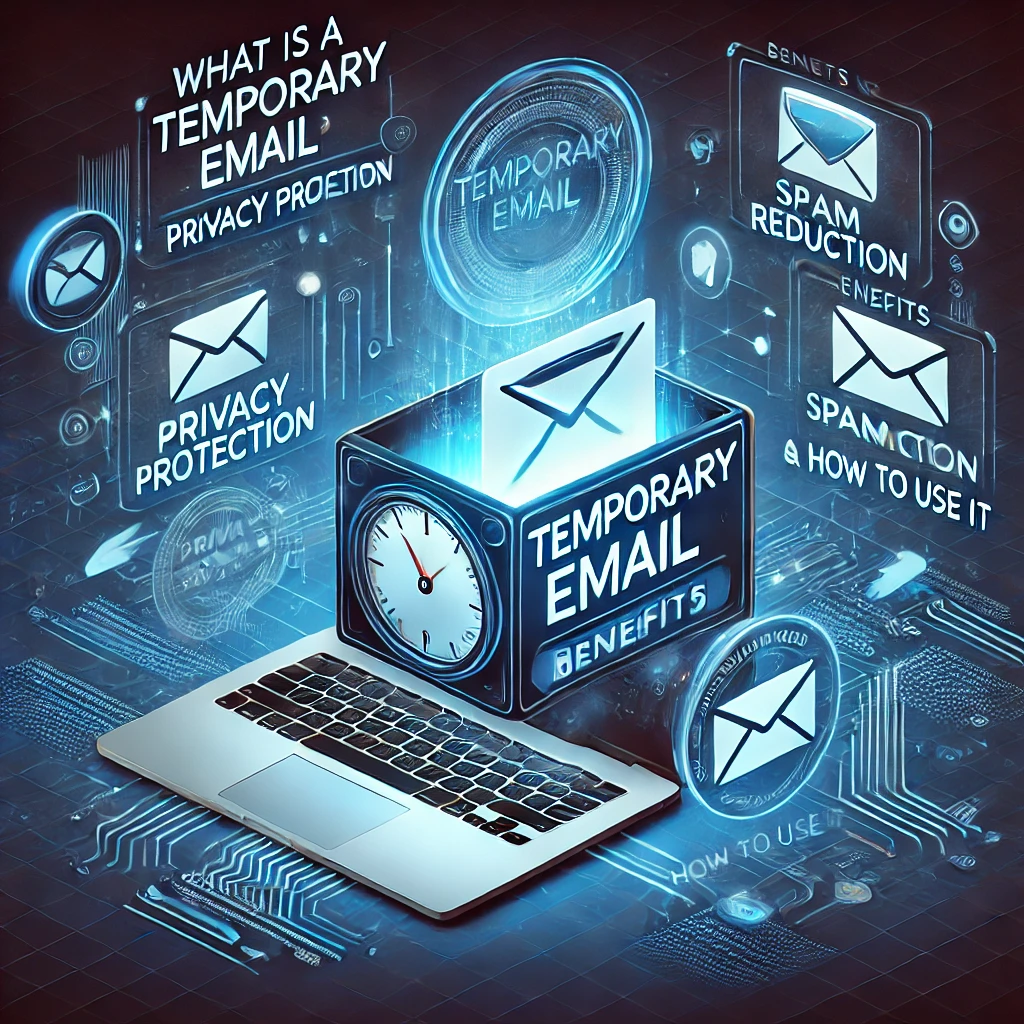When it comes to surfing the internet, security tips you need to know when browsing the web are crucial. The expansive nature of the online world can be both exhilarating and perilous. As we navigate through various websites, it’s imperative to arm ourselves with knowledge about potential cybersecurity threats and practice safe browsing habits. This guide aims to provide a comprehensive understanding of how to enhance your online safety.
Essential Security Tips for Safe Web Browsing: A Comprehensive Guide
The internet is rife with opportunities, but it also poses numerous risks. Understanding essential security tips can help mitigate these dangers, ensuring a safer web experience.
Understanding Cybersecurity Threats
Cybersecurity threats come in many forms, including malware, phishing scams, and data breaches. Recognizing these threats is the first step towards effective online safety.
Cyber threats often evolve, becoming more sophisticated and harder to detect. For example, phishing scams increasingly utilize social engineering tactics to manipulate users into divulging sensitive information. Being aware of these tactics enables users to remain vigilant and skeptical of unsolicited emails or messages.
Moreover, malware can infiltrate devices without notice, stealing personal data or compromising system integrity. Regularly updating your software and using reliable antivirus programs can help protect against such intrusions.
The Importance of Safe Browsing Habits
Implementing safe browsing habits is vital for reducing the risk of falling prey to online threats. Simple practices can make a significant difference.
Start by being cautious about the links you click on or the files you download. Always verify the source before engaging with unfamiliar content. Additionally, utilizing bookmarks for your frequently visited sites can reduce the chances of accidentally clicking on malicious links.
Furthermore, consider employing a VPN (Virtual Private Network) during your browsing sessions. A VPN masks your IP address and encrypts your internet traffic, providing an extra layer of protection against prying eyes.
Data Encryption: The Backbone of Online Security
Data encryption plays a pivotal role in securing your online activities. It transforms sensitive data into a format that cannot be easily deciphered by unauthorized individuals.
When browsing websites that require sensitive information, always check for the padlock symbol in the address bar, indicating a secure connection (HTTPS). This encryption ensures that any data exchanged between your browser and the website remains confidential.
Understanding encryption can empower users to make informed decisions about where to share their personal information. Always prioritize websites that employ encryption standards.
Navigating the Web Safely: Key Security Tips You Need to Know
Navigating the vast ocean of the internet requires skill and caution. By adopting specific techniques and strategies, users can significantly lower their risk of encountering cybersecurity threats.
Creating Strong Passwords
One of the most fundamental aspects of online safety is creating strong passwords. Using complex combinations of letters, numbers, and symbols can prevent unauthorized access to your accounts.
Consider using a passphrase instead of a traditional password. A passphrase is a series of words that is longer and more challenging to guess, thus providing stronger protection. Additionally, avoid reusing passwords across different platforms; if one account gets compromised, others could fall victim as well.
Password managers can also help generate and store complex passwords securely. This way, you can focus on maintaining unique credentials for each service while safeguarding them effectively.
Implementing Two-Factor Authentication (2FA)
Two-factor authentication (2FA) adds an additional layer of security beyond just passwords. By requiring a second form of verification—such as a code sent to your mobile device—it significantly reduces the likelihood of unauthorized access.
Many services offer 2FA, and enabling it wherever possible is wise. Even if a hacker manages to obtain your password, they would still need access to your secondary verification method, making it harder for them to breach your accounts.
Staying proactive about 2FA can enhance your overall internet security, helping safeguard personal data and financial information from cybercriminals.
Utilizing Secure Websites (HTTPS)
Not all websites are created equal. It's essential to identify secure websites, particularly when entering sensitive information such as credit card details or personal identification.
Look for URLs that begin with "HTTPS" instead of just "HTTP". The ‘S’ signifies that the site employs SSL encryption to protect user data. When shopping online or accessing sensitive accounts, only engage with websites that feature this level of security.
Additionally, be wary of pop-ups that prompt you to enter personal information. Legitimate websites usually have strict security measures in place and will not request sensitive data through unofficial channels.
Cybersecurity Essentials: Mastering Safe Browsing Habits for Online Protection
In this digital age, mastering safe browsing habits is essential for protecting oneself online. Small changes in daily browsing routines can lead to significant improvements in personal security.
Regular Software Updates
Keeping your operating system and applications up to date is crucial for maintaining data privacy. Software developers continuously patch vulnerabilities that hackers can exploit, and regularly updating your software ensures you benefit from these enhancements.
Set your devices to automatically install updates whenever possible. This simple action can help you stay ahead of potential threats that target outdated software.
Being Cautious with Public Wi-Fi
While public Wi-Fi offers convenience, it also presents significant risks. Unsecured networks make it easy for cybercriminals to intercept data transmitted over the connection.
When using public Wi-Fi, avoid accessing sensitive accounts or conducting financial transactions. If you must use public connections, consider employing a VPN to secure your data further.
Always double-check the legitimacy of the network before connecting. Official establishments often name their networks accordingly, so be cautious of similarly named networks that could be traps set by attackers.
Managing Privacy Settings
Almost every online service provides privacy settings to control how your data is shared. Take the time to review and adjust these settings according to your comfort level.
Web browsers often allow users to manage cookies and tracking preferences. Opt-out of ad tracking and third-party cookies to limit the amount of data collected about you.
Regularly reviewing your privacy settings on social media platforms is equally important. Be mindful of what information you share publicly and who can view your interactions. Tailoring these settings enhances your web protection strategy.
Protecting Your Data Privacy: A Guide to Secure Browsing on the Internet
Your personal data is valuable, making it essential to implement measures that safeguard your privacy while browsing the web.
Educating Yourself About Phishing Scams
Phishing scams continue to be a prevalent threat. Understanding how these scams operate can help you recognize potential attacks before they trap you.
Phishing attempts often occur through email, wherein scammers pose as legitimate organizations to deceive users into sharing personal information. They often create a sense of urgency, prompting users to act quickly without thinking critically.
To combat phishing attempts, scrutinize the sender's email address and look for discrepancies in spelling or phrasing. If an email requests sensitive information, verify its authenticity through official channels before responding.
Employing Antivirus Software
Antivirus software serves as a vital line of defense against malware and other malicious attacks. Investing in quality antivirus programs helps keep your devices protected from various threats.
Ensure you choose reputable antivirus solutions that offer real-time protection and regular updates. Periodically run scans on your devices to identify and eliminate any lurking threats.
Additionally, consider using anti-malware tools alongside your antivirus software. Combining these two resources enhances your overall security.
Regular Backups
Backing up your data is a critical component of protecting your data privacy. In the event of a cyber attack, having backup copies of important documents ensures you don’t lose valuable information.
Utilize external hard drives or cloud storage solutions to store backups safely. Regularly update your backups, especially after significant changes or new data additions.
Creating a habit of backing up your data not only protects against cyber threats but also prepares you for unforeseen circumstances like hardware failures.
Phishing Prevention Strategies: Securing Your Web Experience from Cyber Threats
Phishing is a persistent threat that can compromise both personal and organizational security. Implementing effective prevention strategies can help minimize the risk of falling prey to these schemes.
Identifying Suspicious Emails
Recognizing the signs of phishing emails is paramount. Look out for generic greetings or poor grammar, which often signal fraudulent communications.
Legitimate organizations typically personalize messages and maintain professional language. If an email seems suspicious, refrain from clicking links or downloading attachments until you can verify its authenticity.
Conducting an independent search for the organization's contact information allows you to reach out directly and confirm whether the communication is genuine.
Training and Awareness
If you work within an organization, advocating for training and awareness programs can significantly reduce phishing incidents. Educating employees about common phishing tactics fosters a culture of vigilance.
Regular workshops and simulations can prepare users to identify phishing attempts. Encourage staff to report suspicious activity immediately, creating an open dialogue surrounding cybersecurity concerns.
Awareness is vital; when employees understand the implications of phishing threats, they become an active line of defense against cyber attacks.
Leveraging Advanced Email Filters
Modern email clients often include advanced filtering options designed to catch potential phishing attempts. Familiarize yourself with these features and enable them to enhance your email security.
Many email clients offer spam filters that automatically redirect suspicious messages to a separate folder. Regularly check this folder for any authentic emails that may have been flagged incorrectly.
By leveraging technology, you can streamline the process of identifying and eliminating potential phishing attempts.
Internet Security Simplified: Practical Tips for Safe and Secure Web Browsing
Navigating the complexities of internet security can seem daunting. However, simplifying the principles behind safe browsing can make a significant impact on your online experience.
Using Privacy-Focused Search Engines
Consider utilizing privacy-focused search engines that do not track your search history or collect personal data. These alternatives prioritize user privacy and provide a more secure browsing experience.
Popular options include DuckDuckGo and StartPage, which allow users to search the web anonymously while delivering relevant search results. Switching to these platforms can greatly enhance your online privacy.
Clearing Browsing Data Regularly
Regularly clearing your browsing data—such as cookies, cache, and history—can help maintain your online privacy. Old data can accumulate and inadvertently expose your browsing habits and preferences to advertisers.
Setting your browser to automatically clear this data upon exit can simplify the process. Make it a habit to check your settings periodically to ensure your privacy is safeguarded.
Monitoring Your Online Footprint
Being conscious of your online presence is essential for maintaining data privacy. Conduct periodic searches of your name to see what information is publicly available.
Review social media profiles, personal blogs, and any other platforms where you may share information. Adjust privacy settings accordingly and consider removing content that could be damaging or revealing.
Taking control of your online footprint empowers you to manage your data proactively and reinforces your commitment to secure browsing habits.
Web Protection 101: Easy Steps to Enhance Your Online Safety
Enhancing your online safety doesn’t have to be complicated. Implementing practical steps can significantly bolster your web protection efforts.
Understanding Browser Security Features
Familiarizing yourself with your browser’s built-in security features can help you navigate the web more safely. Most modern browsers offer tools to block pop-ups, enable secure connections, and manage cookies effectively.
Explore the privacy and security settings to customize your browsing experience according to your preferences. Engaging with these features fortifies your defenses against various online threats.
Keeping Personal Information Private
Being mindful of the information you share online is crucial for maintaining your data privacy. Before posting anything, consider its implications and whether it’s necessary to share.
Limiting the amount of personal information you disclose on social media platforms can help protect you from identity theft and unwanted attention. Review your profiles regularly to ensure you’re comfortable with what is publicly accessible.
Taking Advantage of Browser Extensions
Browser extensions can enhance your internet security by adding layers of protection against various threats. Tools such as ad blockers, script blockers, and tracker blockers help provide a cleaner and safer browsing environment.
Research reputable extensions that align with your needs and install those that prioritize user privacy. Keep them updated to ensure they function optimally.
Developing Secure Browsing Habits: A Foundation for Online Security
Developing secure browsing habits lays the groundwork for lasting online security. Integrating deliberate actions into your routine can reinforce your defenses against cyber threats.
Setting Up Unique User Accounts
Creating individual user accounts for different services can enhance your security. Rather than sharing a single account across multiple platforms, establish distinct profiles tailored to specific needs.
This approach minimizes the risk of losing access to critical accounts should one get compromised. Maintain distinct passwords and security settings for each account to further enhance protection.
Engaging in Active Surveillance
Actively monitoring your accounts for unusual activity can help detect potential breaches early. Set alerts for any suspicious login attempts or transactions, allowing you to respond quickly to unauthorized access.
Engaging in regular account reviews fosters ongoing vigilance regarding your online presence. If you notice inconsistencies, take immediate action to rectify the situation.
Embracing a Security Mindset
Cultivating a security mindset encourages proactive behavior when navigating the web. Understand that online safety is an ongoing commitment—staying informed about emerging threats and adjusting your practices accordingly is paramount.
Encourage friends and family to adopt similar mindsets, creating a community dedicated to online safety. Share insights, tips, and experiences to strengthen collective efforts toward enhanced security.
Staying Safe Online: Essential Security Tips for Every Web User
Every web user has a role in promoting a secure online environment. Adopting essential security tips contributes to a safer digital ecosystem for everyone.
Practicing Digital Hygiene
Just as good hygiene is crucial for physical health, digital hygiene is equally important for online safety. Regularly assessing your digital footprint and cleaning up unnecessary accounts can help minimize potential risks.
Unsubscribe from services you no longer use and delete inactive accounts. This reduces your exposure to possible data breaches while streamlining your online presence.
Engaging with Trusted Sources
Relying on trusted sources for information is vital in combating misinformation and potential scams. Verify the credibility of websites and news articles before sharing or acting on them.
Check for verified badges or endorsements from reputable organizations. Exercising caution in your interactions fosters a safer online atmosphere.
Encouraging Open Conversations About Online Safety
Discussing online safety within your community—be it friends, family, or colleagues—can foster a culture of awareness. Share insights and educate others about the importance of security practices, empowering everyone to take charge of their online safety.
Encouraging open conversations allows individuals to voice concerns, ask questions, and seek guidance, reinforcing a collective commitment to online security.
Beyond Passwords: Advanced Security Tips You Need for Secure Web Browsing
While strong passwords form a foundation for security, advanced techniques enhance protection against evolving cyber threats.
Exploring Biometric Authentication
Biometric authentication—using unique physical traits like fingerprints or facial recognition—offers a sophisticated layer of security. Many mobile devices now incorporate biometric features, adding convenience and enhanced protection.
When setting up accounts, explore options for biometric authentication wherever possible. This method strengthens security and reduces reliance on traditional passwords.
Utilizing Security Keys
Security keys are hardware devices that provide an extra layer of authentication when accessing accounts. These keys generate unique codes or facilitate secure logins, substantially reducing the risk of unauthorized access.
Investing in a security key can enhance your defenses, particularly for high-stakes accounts. Ensure that your chosen platform supports hardware keys for optimal compatibility.
Monitoring Credit Reports
Monitoring your credit reports can help identify potential identity theft before it spirals out of control. Annual reports from major credit bureaus allow users to examine their credit history and spot any irregularities.
Actively disputing inaccuracies and addressing issues promptly can protect your financial interests. Foster the habit of regularly checking your credit reports as part of your broader online security strategy.
Conclusion
As we traverse the vast landscape of the internet, implementing security tips you need to know when browsing the web is paramount. From recognizing cybersecurity threats to cultivating safe browsing habits, each step contributes to a safer online experience.
Understanding the fundamentals of online safety, practicing vigilance, and fostering a culture of awareness among peers can dramatically enhance our collective security. By prioritizing these measures, we can navigate the web confidently, knowing that we are equipped to confront potential challenges.
Embrace these essential security practices and commit to being a responsible web user. The digital realm can be a marvelous place, and together, we can ensure it remains a safe haven for everyone.




